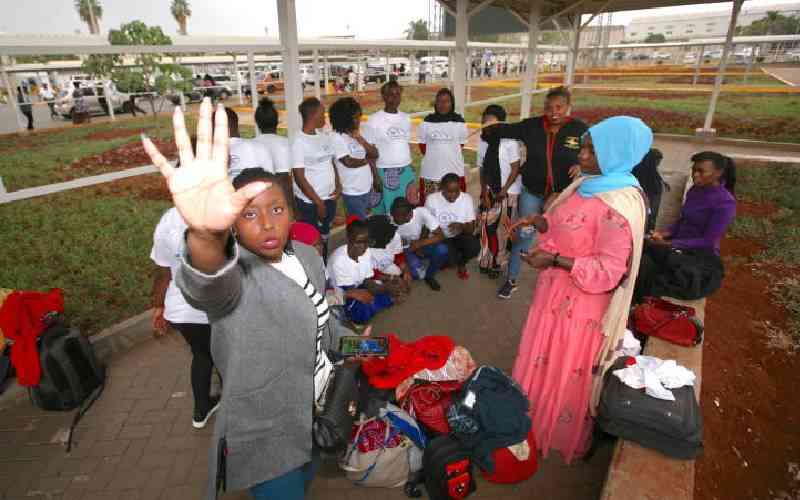×
The Standard e-Paper
Smart Minds Choose Us

Ms Rebecca Chesang only learnt of the details in her contract to work in Saudi Arabia when she got to the airport.
Her woes started in her homeland. Initially, Chesang was supposed to work as a domestic worker in Qatar until the day of departure when her agent handed her contract documents at the Jomo Kenyatta International Airport.